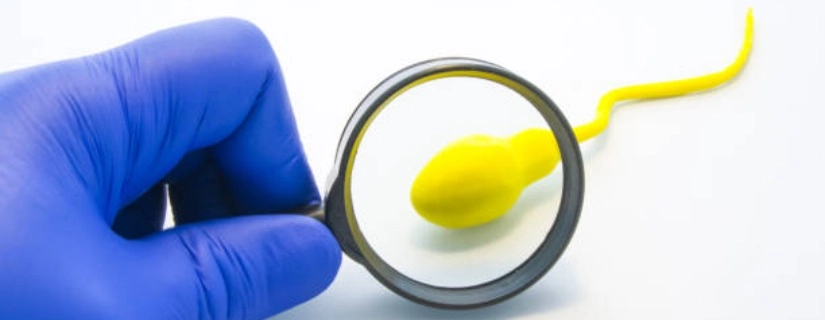-
Doctors
-
Specialities & Treatments
Centre of Excellence
Specialties
Treatments and Procedures
Hospitals & Directions HyderabadCARE Hospitals, Banjara Hills CARE Outpatient Centre, Banjara Hills CARE Hospitals, HITEC City CARE Hospitals, Nampally Gurunanak CARE Hospitals, Musheerabad CARE Hospitals Outpatient Centre, HITEC City CARE Hospitals, Malakpet
HyderabadCARE Hospitals, Banjara Hills CARE Outpatient Centre, Banjara Hills CARE Hospitals, HITEC City CARE Hospitals, Nampally Gurunanak CARE Hospitals, Musheerabad CARE Hospitals Outpatient Centre, HITEC City CARE Hospitals, Malakpet Raipur
Raipur
 Bhubaneswar
Bhubaneswar Visakhapatnam
Visakhapatnam
 Nagpur
Nagpur
 Indore
Indore
 Chh. Sambhajinagar
Chh. SambhajinagarClinics & Medical Centers
Book an AppointmentContact Us
Online Lab Reports
Book an Appointment
Consult Super-Specialist Doctors at CARE Hospitals
Leukocytes in Urine: Symptoms, Causes, and Treatment
Updated on 28 June 2024

Like superheroes in our body, Leukocytes (also known as white blood cells (WBC)) work tirelessly to keep us safe from harmful invaders like infections and diseases. When leukocytes are found in urine, it indicates infection or inflammation within the urinary system. Let us have a detailed discussion on pyuria (leukocytes in urine) and how it impacts our health.
What are Leukocytes?
Leukocytes are a type of blood cells. They are synthesised in the bone marrow and lymphatic system. They defend the body against infections, illnesses, and foreign invaders. Pathologists have classified leukocytes into several different types, each with its specific function:
- Neutrophils: These most common types of leukocytes are the first responders to fight off bacterial and fungal infections.
- Lymphocytes: These cells are responsible for the body's immune response, including the production of antibodies. The types of lymphocytes are T lymphocytes (natural killer cells) and B lymphocytes (which produce antibodies to fight infection).
- Monocytes: These larger leukocytes play a role in the body's inflammatory response and can develop into macrophages or dendritic cells.
- Eosinophils: These cells are responsible for the body's response to parasitic infections and allergic reactions.
- Basophils: These cells release histamine and other chemicals during an allergic response.
Leukocytes are typically found in the bloodstream but can also be present in other bodily fluids, including urine.
Causes of Leukocytes in Urine
The presence of leukocytes in urine, or pyuria, can be caused by various factors. Some of the most common causes include:
- Urinary Tract Infection (UTI): The most common cause of leukocytes in urine is a UTI. Bacteria, viruses, or fungi can cause UTIs. The condition can affect any part of the urinary tract (the bladder, urethra, or kidneys).
- Kidney Infections (pyelonephritis): This type of UTI explicitly affects the kidneys. It can lead to the presence of leukocytes in the urine.
- Sexually Transmitted Infections (STIs): Certain STIs, such as chlamydia or gonorrhoea, can cause inflammation in the urinary tract and lead to the presence of leukocytes in the urine.
- Interstitial Cystitis: This chronic condition causes bladder pressure, pain, and discomfort and can result in leukocytes in the urine.
- Kidney Stones: Kidney stones can lead to inflammation and leukocytes in the urine.
- Certain Medications: Some medications, such as antibiotics or chemotherapy drugs, can cause the presence of leukocytes in the urine as a side effect.
- Systemic Conditions: Certain medical diseases, such as genitourinary cancer (prostate, bladder, or kidney cancer), blood diseases (sickle cell disease), or holding urine for a long time can result in leukocytes in the urine.
It's essential to remember that leukocytes in the urine do not always indicate a serious health issue. Sometimes, it may be a normal response to physical activity or other non-pathological factors.
Symptoms of Leukocytes in Urine:
The emergence of leukocytes in the urine can cause various symptoms, depending on the causative factor. Some common symptoms include:
- Frequent urination
- Burning or pain during urination
- Cloudy or discoloured urine
- Strong or foul-smelling urine
- Lower abdominal pain or discomfort
- Back pain
- Fever
- Chills
- Nausea or vomiting
Treatment for Leukocytes in Urine
The treatment for leukocytes in the urine will depend on the underlying cause. Here are some common treatment options:
- Antibiotics: If the leukocytes are caused by a bacterial infection, such as a UTI, the doctor will prescribe an antibiotic course to clear the infection.
- Antifungal medications: The doctor may prescribe antifungal medicines if a fungal infection causes the leukocytes.
- Medications for chronic conditions: If the leukocytes are caused by a chronic condition, such as interstitial cystitis, the doctor may prescribe medications to manage the underlying condition.
- Lifestyle changes: In some cases, minor lifestyle modifications, such as increased fluid intake, urinating when you have to go, or staying active, may help to reduce the presence of leukocytes in the urine.
- Surgery: In rare cases, a doctor may feel that surgery is necessary to address underlying issues (e.g., kidney stones or anatomical abnormalities in the patient's urinary tract).
Following the doctor's instructions and completing the entire course of any prescribed medications is essential to ensure the best possible outcome.
Conclusion
Leukocytes in the urine can significantly indicate various health issues, ranging from UTIs to chronic conditions. By understanding the causes, symptoms, and treatment modalities, individuals can work with their doctors to develop an appropriate treatment plan and maintain their overall urinary tract health.
FAQ's
1. What is a high leukocyte count in urine?
A high leukocyte count in urine, also known as pyuria, is typically defined as the presence of more than 5-10 leukocytes per high-power field (HPF) on a microscopic examination of the urine sample. However, the leukocytes in the urine normal range can vary slightly and depend on the laboratory and doctor's guidelines.
2. What if there is positive leukocytes in urine?
If leukocytes are present in the urine (positive for pyuria), it may indicate underlying health conditions, such as UTIs, kidney infections, or other inflammatory conditions. Do not hesitate to consult a doctor to understand the underlying disease and receive appropriate treatment.
3. What will happen if leukocytes are high in urine?
If leukocytes are present in high levels in the urine, it can indicate a more serious underlying condition, such as a severe urinary tract infection or kidney infection. Untreated, these conditions can lead to potentially serious complications, such as spreading the infection to the kidneys or bloodstream.

ENQUIRY FORM
SELECT CATEGORIES
-
Neurosciences (16)
-
Neurology (37)
-
Neurosurgery (14)
-
Orthopaedics (48)
-
Oncology (33)
-
Obstetrics and gynecology (52)
-
Pulmonology (23)
-
Urology (20)
-
Nephrology (13)
-
Psychiatry (7)
-
Dietetics and Nutrition (111)
-
General Medicine (63)
-
Cardiac Sciences (32)
-
Vascular & Endovascular Surgery and Interventional Radiology (15)
-
Gastroenterology (46)
-
Endocrinology (23)
-
Plastic Surgery (10)
-
Critical Care Medicine (5)
-
COVID-19 (16)
-
Dermatology (16)
-
Emergency Care (1)
-
Ophthalmology (4)
-
Pediatrics (14)
-
Laparoscopic and Bariatric Surgery (8)
-
ENT (15)
-
Kidney Transplant (1)
-
Liver Transplantation and Hepatobiliary Surgery (5)
-
General Surgery (3)
-
Internal Medicine (5)
-
Medicine Information
Male Yeast Infection: Symptoms, Causes, Treatment and Home Remedies
Foamy Urine: Symptoms, Causes, Treatment and Home Remedies
YOU MAY ALSO LIKE
RECENT BLOGS
-

Preterm Birth (Premature Birth): Symptoms, Causes, Treatment and Prevention
13 May 2025
Read More
-

Rotablation Angioplasty: Benefits, Treatments, And Recovery Time
9 May 2025
Read More
-

What Is The Difference Between IUI and IVF?
9 May 2025
Read More
-

Venous Malformations: Causes, Symptoms, and Treatment
30 April 2025
Read More
-

Varicose Vein Foam Sclerotherapy: Treatment, Benefits, and Procedure
30 April 2025
Read More
-

Radiofrequency (RF) Ablation Treatment for Varicose Veins: Know More
30 April 2025
Read More
-

Varicose Vein Sclerotherapy: Treatment, Benefits, and Procedure
30 April 2025
Read More
-

Varicose Vein Endovenous Laser Ablation: Procedure, Benefits, Risks
30 April 2025
Read More
Have a Question?
If you cannot find answers to your queries, please fill out the enquiry form or call the number below. We will contact you shortly.


















